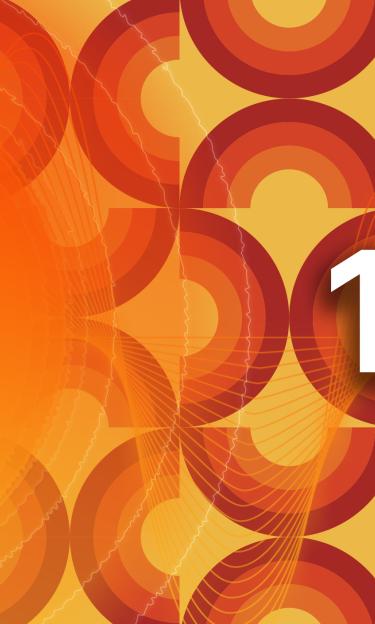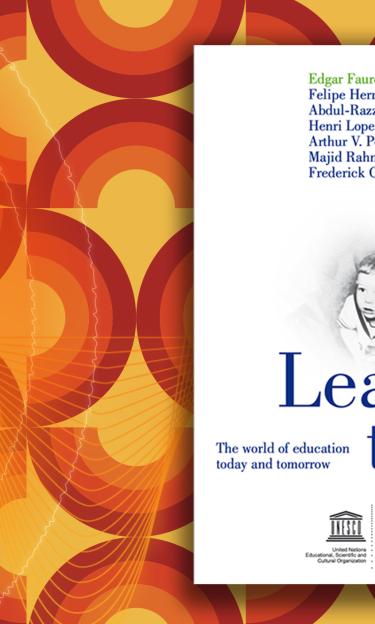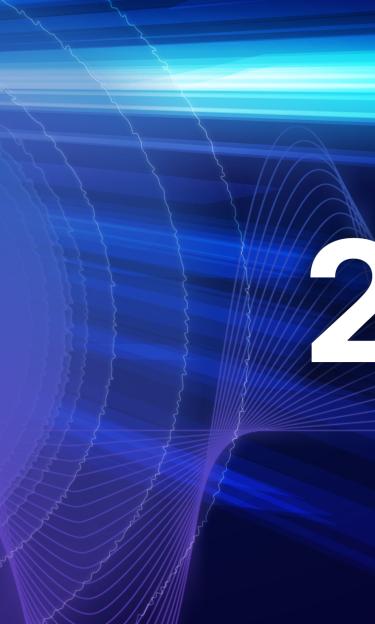Visions for education
Since its founding 75 years ago, UNESCO has, at key historical junctures of societal transformation, periodically commissioned global reports rethinking the role of education founded on the fundamental principles of its Constitution.
UNESCO's vision for education is enshrined in its Constitution
UNESCO believes in “full and equal opportunities for education for all, in the unrestricted pursuit of objective truth, and in the free exchange of ideas and knowledge.”
UNESCO Constitution 1945

The first in the series of UNESCO visioning exercises took place in the early 1970's against a backdrop of huge economic, political and social change. Politically, the period was dominated by Cold War dynamics dividing the world into three predominant blocks (the North Atlantic Treaty Organization, the Warsaw Pact and the Non-Aligned Movement). Many countries were also in the process of gaining independence from colonial powers, whilst other countries experienced totalitarian governments. There was economic upheaval as the boom period following the Second World War gave way to new economic models, as well as crises due to volatile oil supplies. Social movements, including feminism, civil rights and an emerging environmentalism, continued to permeate societies. Technologies such as ubiquitous access to radio and the first commercially-produced microprocessor altered began to shift the possibilities for human communication.

The International Commission on the Development of Education was established in 1971 was chaired by Edgar Faure, a former Prime Minister of France to reflect on educational strategies at the international level. Learning to Be: the world of education today and tomorrow (often referred to as the “Faure Report”) published in 1972, warned of the "painful prospect of grievous inequalities" leading to a "fundamental risk of de-humanization". The report emphasized the need for the continued expansion of education, for education throughout life and for building a learning society.
"If learning involves all of one's life, the the sense of both time-span and diversity, and all of society, including its social economic as well as its educational resources, then we must go further the the necessary overhaul of educations systems until we reach the stage of a learning society."

The period following the end of the Cold War saw a realignment of political and economic models. Whilst many parts of the world experienced a period of relative prosperity. In parallel, an anti-globalization movement began to emerge uncovering a mood of discontent with the direction of globalization, due to tensions between tradition and modernity, the local and the global. Greater attention was being paid to multiculturalism, particularly in growing urban centres. There were advances in communication technologies, notably the World Wide Web and the expansion of satellite television, with repercussions on access to information and culture. The environmental movement gained greater visibility at the international level, particularly during the 1992 Earth Summit, held in Rio de Janeiro.

The International Commission on Education for the Twenty-First Century, set up in 1993, was led by Jacques Delors, French Member of the European Parliament. Learning: the treasure within (“the Delors report”), published in 1996, outlined a "necessary utopia" through education to counter the "dizzying feeling" of being torn between globalization and the search for a sense of belonging. It proposed an integrated vision of education around the four pillars: learning to be, learning to know, learning to do, and learning to live together in a lifelong perspective.
"There is every reason to place renewed emphasis on the moral and cultural dimensions of education, enabling each person to grasp the individuality of other people and to understand the world's erratic progression towards a certain unity."

The United Nations Commission on Sustainable Development, established by the UN General Assembly in 1992 to ensure effective follow-up of United Nations Conference on Environment and Development (also known as the Earth Summit) launched in 1996 the International Work Programme on Education, Public Awareness and Training for sustainability. UNESCO, in in effort to shape work on the emerging concept of education for sustainable development, commissioned French philosopher, Edgar Morin, to express his ideas on the essentials of education for the future. His essay is organised around "seven complex lessons": 1.) detecting error and illusion 2.) principles of pertinent knowledge 3.) teaching the human condition 4.) Earth identity 5.) confronting uncertainties 6.) understanding each other 7.) ethics for the human genre.
"Education should not only contribute to an awareness of our Earth-Homeland, it should help this awareness find expression in the will to realize our earth citizenship."

UNESCO established a Senior Experts' Group to reappraise the 'Delors Report' and identify future orientations of global education. It was set up as the Millennium Development Goals were winding down and the post-2015 development agenda was under discussion. UNESCO was well-positioned to provide thought leadership, as well as being the lead technical agency for the global Education for All movement, establibished in 1990. The group was co-chaired by Ms Amina J. Mohammed, Special Advisor to the United Nations Secretary-General on Post-2015 Development Planning and Assistant Secretary-General, and Professor W. John Morgan, UNESCO Chair at the University of Nottingham, in the United Kingdom. The publication proposes considering education and knowledge as global common goods to reconcile the purpose and organization as a collective societal endeavour in a changing world, whilst reaffirming the right to education as a foundational principle.

In the 2020's, there is a consensus that humans have overwhelmed the natural world, threatening the existence of life on the planet. There are gaping inequalities that are deepening. Whilst more and more people are engaged in public life, but the fabric of civil society and democracy is fraying in many places around the world. Rapid technological changes are transforming many aspects of our lives. Yet, these innovations are not adequately directed at equity, inclusion and democratic participation. These complex, interlinked issues have led the United Nations Secretary-General, Antonio Guterres to remark that "the choices we make, or fail to make, today could result in breakdown or a breakthrough to a greener, better, safer future. The choice is ours to make."

Reimagining Our Futures Together: a new social contract for education was published in 2021 by the International Commission on Futures of Education. The message at its heart is that "we need to take urgent action to change course, because the future of people depends on the future of the planet, and both are at risk. The report proposes a new social contract for education – one that aims to rebuild our relationships with each other, with the planet, and with technology." As a living document proposing a framework, principles, and recommendations to be further explored, shared, and enriched by people around the world, it is a a milestone on a road stretching into the future.



